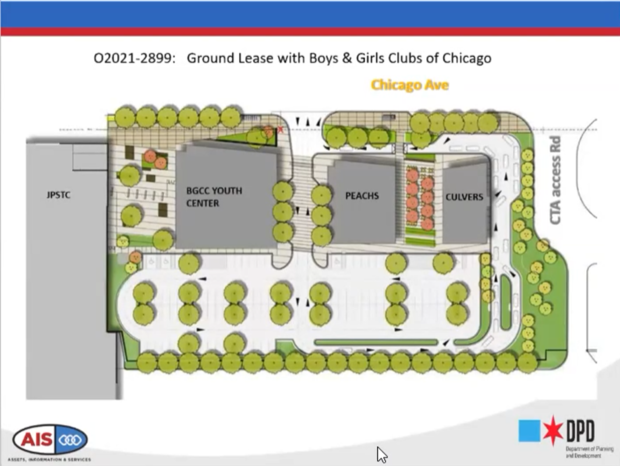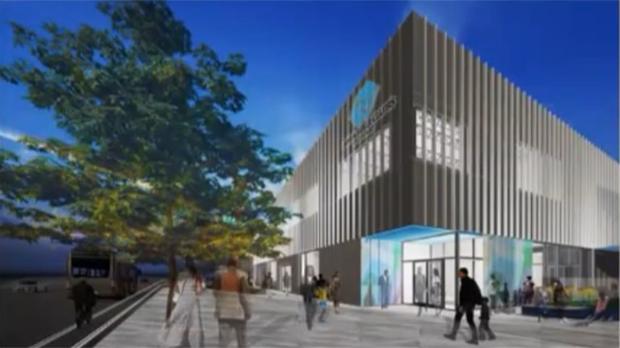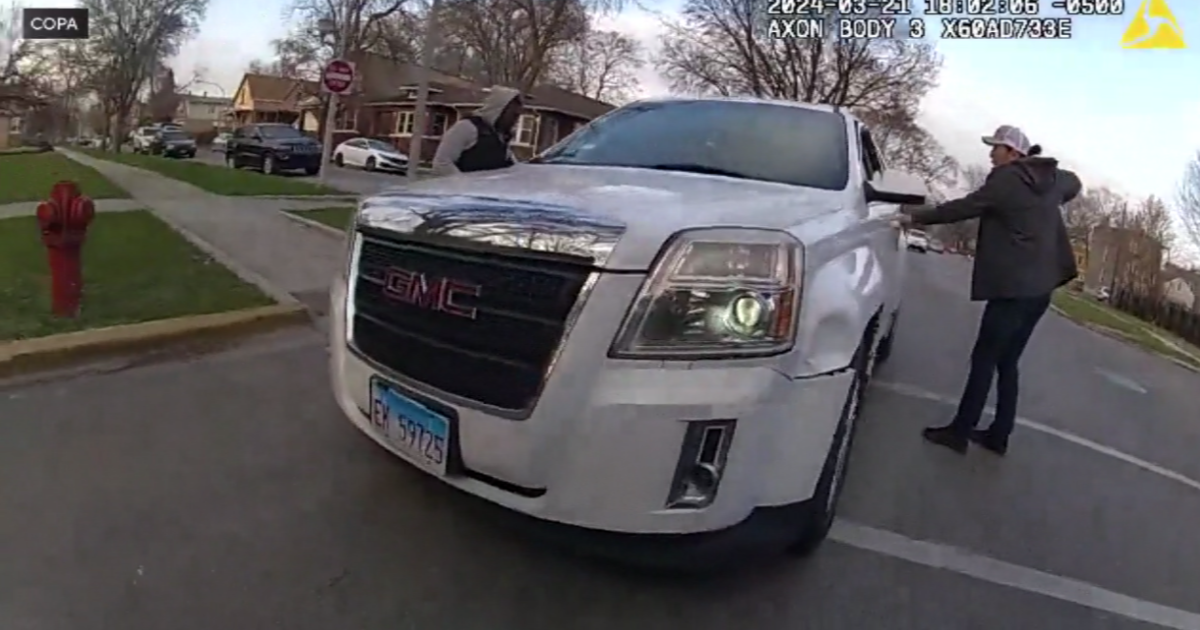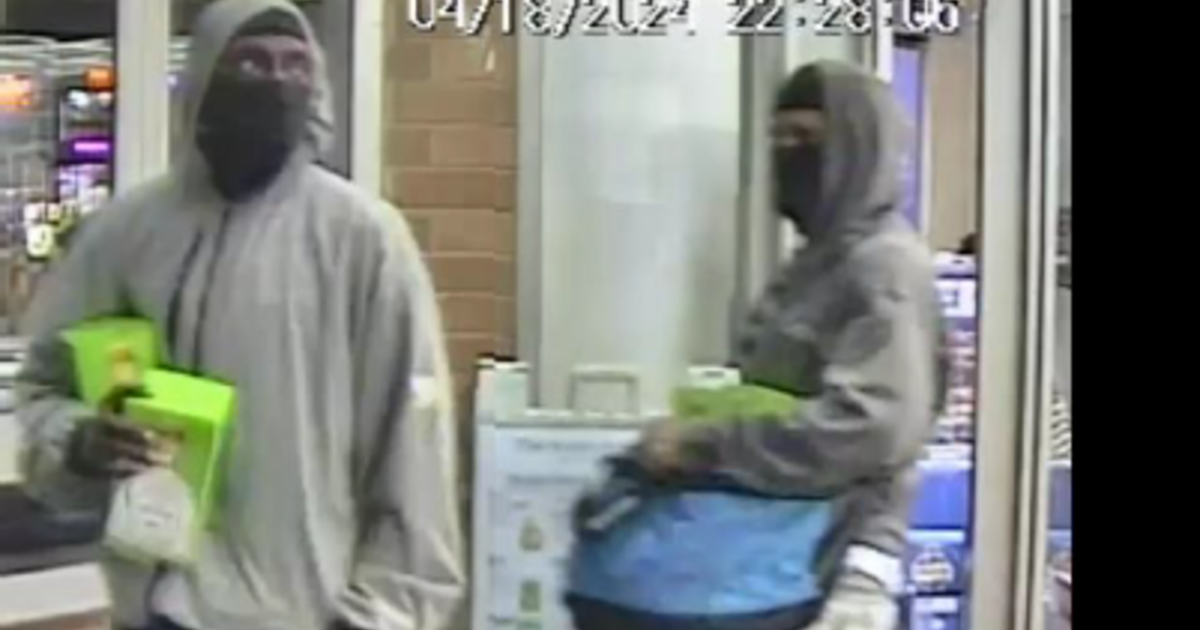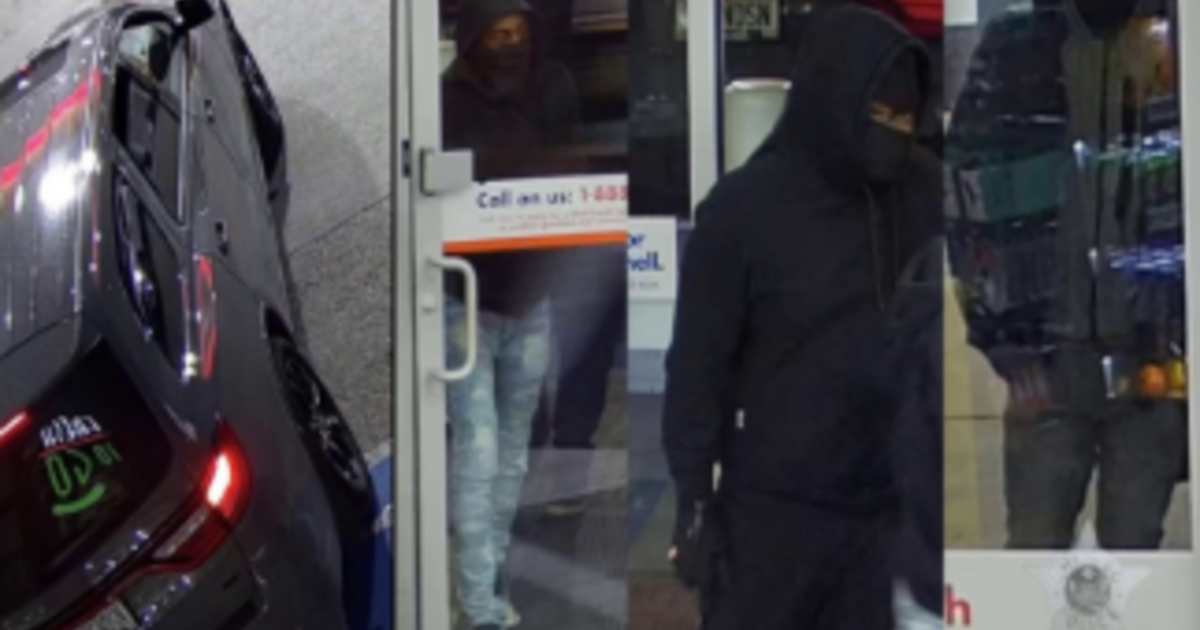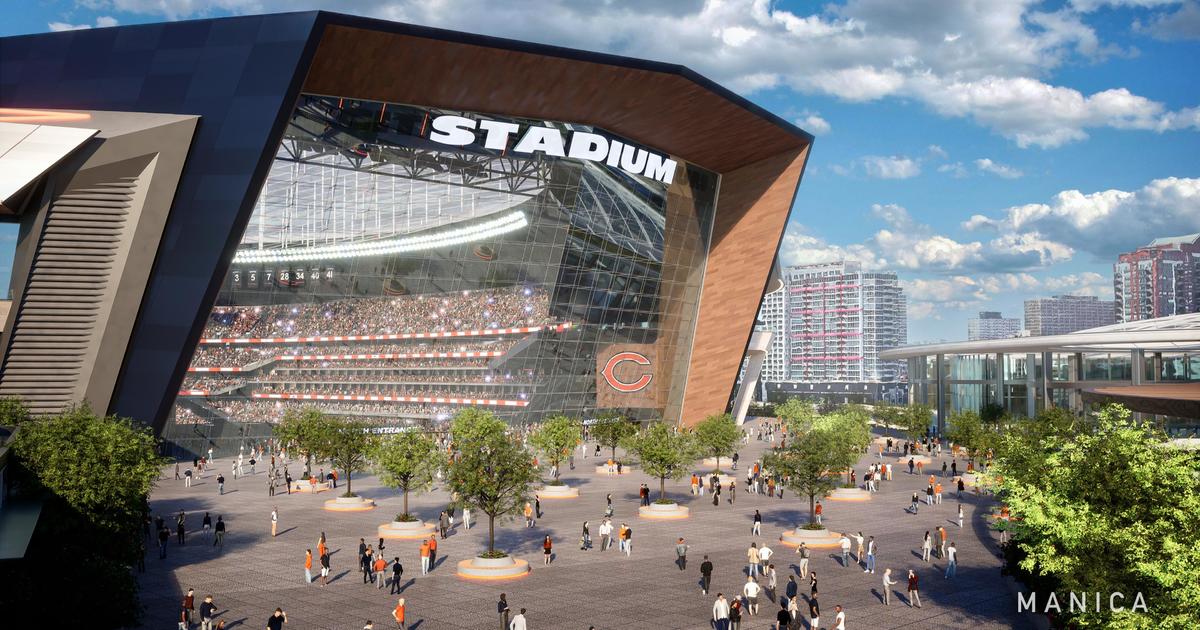City Council Panel Endorses Plan For Boys & Girls Club On West Side Campus Of $95 Million Police And Fire Academy
CHICAGO (CBS) -- A City Council Committee on Wednesday backed plans for a new Boys & Girls Club facility to be built on the campus of the police and fire training academy already under construction in West Garfield Park, despite criticism from some activists the move is just a political ploy to make the academy more palatable to those who oppose it.
The $8 million youth development center will be the first new Boys & Girls Club in Chicago in more than a generation. According to the mayor's office, the two-story, 18,000-square-foot facility will be part of the city's new Joint Public Safety Training Campus now being built at 4443 W. Chicago Av. The project is being funded entirely by the Boys & Girls Club.
The City Council Committee on Housing and Real Estate on Wednesday unanimously approved a lease agreement with the Boys & Girls Clubs of Chicago to build their new facility on the training academy campus. The city will lease approximately half an acre of land on the campus to the Boys & Girls Club for $1 per year for 55 years, with two 10-year options to extend the lease.
Construction of the $95 million public safety training academy began earlier this year, and is expected to be completed in the fall of 2022.
Construction of the Boys & Girls Club is scheduled to begin later this year, and to be completed by spring of 2023.
The Boys & Girls Club will include specialty classrooms for art, science, and other uses; an NBA-sized gymnasium; a green roof; and a teaching commercial kitchen for youth programming.
Plans for the new police and fire academy were first announced by then-Mayor Rahm Emanuel in 2017, and the City Council voted in March 2019 to approve the facility, despite the objections of protesters who urged the city to spend the money on improving public schools, providing new social service programs, or reopening shuttered mental health clinics.
Mayor Lori Lightfoot opposed the project while running for office, saying it was not big enough for the needs of the next generation of first responders, and there was not sufficient community engagement about where it would be built.
But it was approved by City Council before she took office, and she has since said because of the money already spent on the project, the city needs to press forward with the training academy, although she has continued to suggest it might need to be bigger than planned.
Critics have said the plan to add a Boys & Girls Club to the public safety training academy campus is a political move aimed at trying to shore up support for something many Black youth on the West Side oppose.
However, Ald. Emma Mitts (37th), whose ward includes the training academy campus, shrugged off those criticisms during Wednesday's committee hearing.
"I feel that this is an opportunity of a lifetime for all of us. Our youth need to have a first-hand [look] at what our first responders are doing daily, the work they're doing," she said. "For anyone who said that this was not going to be a benefit for neighborhoods, I can truly say you're wrong. If you're saying that it's not going to bring other economic development to the neighborhood, I can tell you you're wrong on that point also. There are going to be even more opportunities for other business to want to come in."
Ald. Byron Sigcho-Lopez (25th), who voted in favor of the Boys & Girls Club project, said he was still concerned that many young people who could benefit from the facility's programs would opt not to use it because of its proximity to a police training academy.
"We have along way to go if we want to rebuild trust with the Chicago Police Department, and especially our young people, youth at risk right now," he said. "My concern is that we continue to leave some of the youth who need it the most out, who may not be willing to attend spaces where they don't feel comfortable or safe."
Boys & Girls Club CEO Mimi LeClair said the organization conducted 12 focus groups with local youth while planning the new center, and has also been in contact with local schools and students. She said those conversations will continue as the project is built.
"We are community-minded. Clubs really take on the culture of the various communities. We base our programming on the individual club, and what those young people need. So we will continue to seek youth voice, and I think we've done an extraordinary job thus far of doing so," she said.
LeClair said the Boys & Girls Clubs have a long history of building trust with the communities they serve, and that will continue.
"We are convinced this new club represents a transformational opportunity for young people in Chicago to promote healing, and build bridges where few currently exist; to break down barriers that have stood in the way of dialogue and understanding; and to help chart a more promising path forward for our city and its young people," she said.
Ald. Raymond Lopez (15th) said building the Boys & Girls Club facility on the training academy campus is an ideal way to help the city rebuild trust between police and young people trying to improve their lives.
"Heroes will be trained and groomed in this facility, and I've heard a lot of talk today fueling a narrative that somehow having our youth being alongside those heroes is a bad thing. I don't believe that is the case. I believe that, more often than not, we do have safe engagements between the police and our youth; and that if we're focusing on rebuilding trust, you can't do it when you're separated from each other. It has to be together. We have to learn how to coexist together," Lopez said. "That is what everything that we do should be about; building bridges, not reinforcing negative stereotypes."
Marco DeLaRosa, senior director of programs at Boys & Girls Clubs of Chicago, said national studies by Columbia University have confirmed Boys & Girls Clubs make surrounding neighborhoods safer, with reductions in juvenile crimes and the presence of drugs in the community.
"Most of all, the study finds the Club has increased the overall quality of life of children and families in the community. This is the work we do and we do it well," he said.
DeLaRosa said some Boys & Girls Clubs have negotiated "neutral zone treaties" with street gangs, and some of those treaties still hold.
"Boys and Girls Clubs are beacons of hope for their youth and communities, where they have a safe place and environment to learn, grow, with supporting adults that help them reach their highest potential, and create well-rounded individuals for our city," he said.
The proposed lease agreement with the Boys & Girls Club now goes to the full City Council for consideration at its next meeting on July 21.
